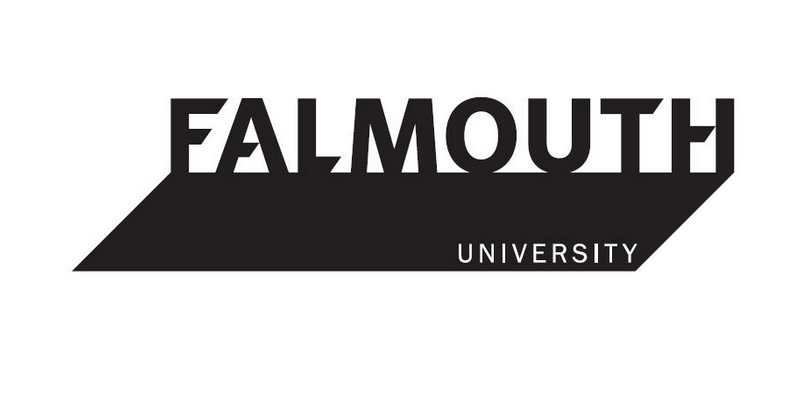
The photography industry is complex and competitive. To succeed, you need a course that pushes you further than simply mastering your technical skills, deepening your photographic knowledge and ability to innovate.
With the help of our course you’ll draw on other disciplines, build international connections, and explore wider contexts to engage meaningfully with this technologically and socially evolving medium. Through a range of activities including live briefs set by real clients, you’ll develop the professional skillset to make your mark in the industry, ready to join our rich legacy of accomplished and award-winning graduates.
You will:
As well as an internationally recognised postgraduate qualification, as a successful graduate you’ll leave the course with a body of work strong enough to take you to the next stage in your career and sustain your practice beyond.
Share your details in order to receive information about this high quality online masters course.
Find your creative voice
This MA is designed to enhance your artistic, critical, and professional skills, regardless of where you are in your career. Live briefs with real clients will equip you with the skillset, experience, and connections to thrive in this demanding and competitive industry.
You’ll be challenged to interrogate your practice and develop your creative voice. By experimenting with new materials and techniques, you’ll push your technical abilities and creative boundaries to excel as a specialist.
As well as joining our own collective of artistic minds, designers, and makers, you’ll expand your creative circle even further, becoming part of a global network of practitioners and finding your place within the wider photography community.
This module enables you to locate your practice within the broad contexts of professional contemporary photography.
You will consider the importance of research as a fundamental aspect of contemporary photography in both academic and industry contexts, and critically reflect on core themes in contemporary visual culture.
Through discursive activities with faculty staff and peers, as well as self-directed research and personal reflection, you will analyse your practice in relation to specific themes, and articulate your practical and conceptual motivations and intentions as an image-maker.
'Informing Contexts' aims to increase your understanding of how contemporary practice is enriched through critical and theoretical contextualisation, helping you develop an informed and sophisticated photographic practice.
The module will introduce you to a number of themes and debates that are fundamental to the study of the image, such as debates around looking and subjectivity.
You will also consider your own practice in relation to historical, philosophical, and ethical perspectives around photography and visual culture.
This module considers the different contexts in which the photography is published, and how its form influences how it is received and understood by audiences.
You will explore the many creative strategies involved in the production, resolution, and publication of photographic work, and consider the possibility of interdisciplinary approaches in the making and presentation of your own creative output.
As you study, you’ll also devise strategies and workflows that are conscious of material consumption and work towards professional, and ecological and environmental sustainability.
You’ll be encouraged to experiment with new materials, processes, and creative strategies as appropriate to your specialism.
‘Collaboration and Professional Locations’ strives to increase your understanding and appreciation of the roles, relationships, and responsibilities that can play a major part in progressing and sustaining your professional practice.
As part of this, you will be encouraged to undertake commissions and work placements during this module, and to devise or engage in photography and visual arts initiatives relevant to your work.
You’ll also have the opportunity to collaborate on a live brief with a small group of peers. These briefs will be set by clients and allow you to gain experience with real world, industry challenges.
This module provides you with the chance to produce a critically and professionally informed research project and deliver it to a public audience.
Initially, you will submit a proposal outlining a scheme of work and the critical contexts surrounding your project. You’ll then work continuously on the module over the course of two study blocks.
The project will be your opportunity to demonstrate increasing autonomy in respect of your research capabilities, alongside support from your supervisor.
You will also continue to benefit from the programme’s ongoing series of guest lectures by leading contemporary practitioners and industry experts.
Benefits of learning online with us

• No visas or moving costs
• Access course from anywhere in the world
• Spend approx. 20-25 hours studying each week
• All course materials are available on demand
• Revise on the days and times that suit you best
• Course modules broken down into weekly
segments
• Fit studies around work, family and social life
• Support with non-academic queries from a
student adviser team

Our graduates go on to achieve great things: from successful careers in travel, fashion, and editorial photography to becoming award-winning documentary photographers and internationally celebrated portrait photographers.
Talent and technical ability are vital, but we’ll also prepare you for the realities of life in the industry, encouraging you go out and gain first-hand experience with commissions, work placements, and a live brief project set by a real client.
Past clients have included organisations such as Oxfam, the Royal Photographic Society, and the Wellcome Photography Prize. You’ll develop the professional and transferrable skills – from pitching to collaborating – needed to thrive in many fields of the creative industries.
In addition to the guidance offered by our tutors, you can also access RealWORKS, our careers and employability service throughout your studies, and for up to 5 years following graduation.
Our expert team will help you identify potential opportunities in the UK or internationally, prepare for job interviews, advise you on starting up your own business, and more.
Graduates of our MA Photography course can use their creative and technical skills to thrive in a range of career paths. You’ll gain a clearer idea of your interests and develop a distinctive voice, allowing you to either focus on a photography specialism that suits you, or branch out into exciting related areas.
It is also worth bearing in mind that all creative arts degrees promote fundamental, transferrable skills including critical thinking, problem-solving, creativity and innovation – all of which are in the World Economic Forum’s top five skills priorities.
Professional photography can be a lucrative field that gives you an opportunity to earn an income doing what you love. In practice, there are relatively few full-time photographer roles, and the overwhelming majority are self-employed or ‘freelance’, working for a range of clients.
Whilst some will find a particular niche or specialism that is sustainable and fulfilling, most freelance photographers have ‘portfolio careers’, and their work might be comprised of a combination of some of the roles outlined here. Although day rates for freelances can be high, establishing a steady, reliable stream of clients and contracts can take several years to establish.
Whether you seek out a path towards commercial or editorial photography, or see yourself working within the art world and cultural industries, a good undergraduate degree will equip you with the tools you need to carve out a career within this ever-evolving medium.
Here are just a few of the career paths that photography graduates will take:

Benefits of learning online with us
Qualifications:
Portfolio:
English language requirements:
We accept a number of additional English language qualifications as well.
Candidates without a degree or formal qualification are also encouraged to apply. If you have prior learning or experience with this subject, you may even be able to apply for Accreditation of Prior Learning (APL).
If you’re unsure whether you’re eligible to apply, please get in touch with our course adviser team for advice.
Share your details in order to receive information about this high quality online masters course.

Fuel your ambition and achieve a big increase in your earning potential by studying one of our high quality flexible master programs developed by some of the top British Universities.
® London House Academy 2023 | Powered by diho.mx